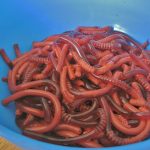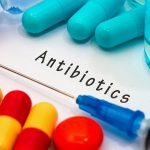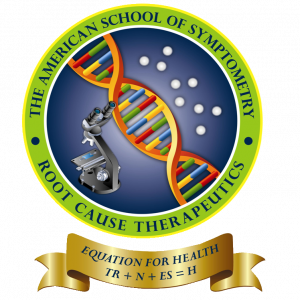Stopping the epidemic of stomach pain
Dr. Maxwell Nartey
Professor of Symptometric Science, American School of Symptometry, NFP
World Center for Health Education and Scientific Enlightenment
Children, adults, and senior citizens complain of periodic stomach pain, or chronic stomach pain. This pain or discomfort may occur before eating, when eating, or after eating.
Sometimes, the stomach pain occurs all of a sudden regardless of the time food was eaten, or it occurs after eating a specific item such as sugar, oil, starch, meat, fish, legumes (beans, lentils, peas, etc.), or cooked vegetables such as broccoli, leeks, celery, etc.
Stomach pain sufferers go to a hospital, and after using a gastroscope to examine their stomach, their ailment is diagnosed as gastritis, stomach ulcer, gastralgia, or GERD aka acid reflux.
Then, when the stomach pain is associated with diarrhea, the ailment is diagnosed as gastroenteritis, and a pharmaceutical drug is prescribed. What can the drug do? Nothing. Unfortunately, this is what the patrons of allopathic medicine have been enduring. The Symptometric approach is totally different.
In Symptometry, investigation comes first because the stomach is the gateway to cellular health.
What has been causing the stomach pain? Why does the pain occur only when eating vegetables or after eating vegetables? Why does the pain occur when or after eating food that was cooked with oil? Why does the pain occur when or after eating meat, sugar, or starchy food? Why does the pain occur when or after eating saltwater fish but it does not occur after eating freshwater fish? What is the difference between saltwater fish and freshwater fish? Here comes the next question.
What is in starch, fish, vegetables, oil, etc. that keeps causing stomach pain? This is the answer that patients cannot get from physicians. Even though physicians can’t provide answers, they are quick to write a prescription. Not so fast this time. Symptometry will provide the scientific explanation that stomach pain sufferers have been seeking for years. First, know more about the stomach.
Getting to know more about the stomach
The stomach performs two distinct functions, and for it to continue to perform these functions the sources of the natural and man-made poisons must be known and avoided or neutralized. Also, the toxins from past fevers, viral infections, bacterial infections, and fungal infections must be ionized. Unless these two actions are taken to allow cell nourishment to resume and tissue renewal to continue, the stomach disease will become chronic.
As I said earlier, toxins have not been ionized. They must be ionized, and poisons must be neutralized. Then, the person must be educated on what should be done to make their stomach function efficiently.
How to have a healthy stomach
To have a healthy stomach, it is important to prevent the formation of gastrolith, or if there is gastrolith, it must be ionized or hydrolyzed. What is gastrolith?
Gastrolith is the concretion that the toxins of bacteria, fungi, viruses, and protozoa, and food poisons produce. It is so acidic and destructive that it would keep eliminating cortisol from the stomach. It is the constant elimination of cortisol that would make the stomach susceptible to inflammation. Inflammation prevents the production of enkephalin, substance P and endorphin. Hence, the constant or periodic stomach pain that certain individuals tend to experience.
What conditions favor the production of gastrolith? The answer is fever.
Children have fevers such as fever associated with meningitis, fever associated with teething, fever associated with ear infection, fever associated with infectious mononucleosis, fever associated with malaria, etc. Adults also have fevers. Here is what should be known about fevers.
Fevers weaken and soften immunity so outrageously that many glands become jammed. Then, the toxins of the microbes that caused the fever will coalesce around the concretions called calculi in the stomach to produce gastrolith. From fever to gastrolith.
Therefore, a practitioner or a doctor who focuses solely on lowering the person’s temperature, would miss the microbial toxins, and stomach calculus. It is such a miss that would eventually allow the formation of gastrolith.
The dangers of gastrolith
The liver produces bile salts. Gastrolith prevents bile salts from:
- Immobilizing invading microbes.
- Increasing food’s surface area and reducing friction during digestion to facilitate enzymatic action and reaction.
- Facilitating the mixing of food with gastric juices, pancreatic juices, and bile to produce high-quality chyme whose nutrients can easily be extracted and assimilated.
- Facilitating the production of HCL (hydrochloric acid).
- Allowing the renal tubules to retain minerals so that electrolytes such as potassium, calcium, etc. are not lost.
- Enhancing the absorption of fat-soluble vitamins such as vitamins A for eye health, vitamin D for bone health, vitamin E for organ and glandular health, and vitamin K2 to prevent hemorrhagic diseases.
- Bringing about emulsification (breaking fats into tiny droplets so that fats do not clump together to produce fat globules). Such separation allows pancreatic lipase and intestinal lipase to thoroughly digest fats, thereby making it impossible for the person to have elevated bad cholesterol, and too many triglycerides.
- Breaking up smelly gases. Smelly gases that are not broken up would make feces, body odor, underarm odor, vaginal odor, flatulence, and breath to smell awful.
- Keeping cholesterol in the gallbladder in a liquid state, thereby causing the formation of gallstones.
It is the absence of high-quality bile salts that causes vitamin D deficiency, vitamin E deficiency, vitamin K2 deficiency and vitamin A deficiency. Our colon bacteria produce vitamin K2. Unfortunately, antibiotics wipe them out.
Any woman who bleeds excessively during her menses suffers primarily from vitamin K2 deficiency, and secondarily from ferriheme deficiency. Contact Symptometry to have this rectified.
Vitamin K1 (phylloquinone) comes from plants and vitamin K2 (menaquinone) comes from our colon bacteria. Therefore, vitamin K1 is not vitamin K2. We are not plants, and we are not made of cellulose. Why eat vegetables for vitamin K?
Wiping out colon bacteria with antibiotics on the assumption that probiotics would repopulate the colons and restore ecological balance has proven to be partially false. The menaquinone producers are not among the strains of bacteria that repopulate the colons. We were born with the menaquinone producers. Therefore, losing the menaquinone producers does not guarantee that they will be back in 40 years.
The role of the gallbladder
If the gallbladder is removed, no other organ can store bile between meals, can remove water from bile so that it remains concentrated, add water to cholesterol so that it remains fluid in the gallbladder, and release bile into the first section of the small intestine (the duodenum).
Therefore, the removal of the gallbladder would compromise the person’s digestion so badly that bloating, gassiness, slow digestion, constipation alternating with diarrhea, indigestion, seeing undigested food in the stool, food getting stuck in the chest, belching, or hiccupping could become frequent occurrences. In truth, all the individuals without gallbladder are miserable.
If the gallbladder is inflamed, or there are lesions on it, it should not be removed. Even if there are gallstones in it, the gallbladder should not be removed. Symptometry handles such cases easily so that the person can continue to thoroughly digest their food.
Since the stomach is connected to the gallbladder, the pancreas, the liver, and the small and large intestines, what affects the stomach would sooner or later affect the efficiency of the gallbladder, the liver, the pancreas, the large intestine and the small intestine. Therefore, removing the gallbladder is a mistake that surgeons have been making, and this should stop. Here is another reason for not removing the gallbladder.
The entire digestive system is integrated into the autonomic nervous system, and the cations in the bile salts produce electrical currents to circulate nutrients and resources in plasma.
Also, the cations in bile salts prevent potassium and other minerals, as well as chlorides from leaking through the renal tubules.
Stomach infections
If the invading microbes are not immobilized to facilitate phagocytosis by the T cells, they will cause stomach infections, because nothing would destroy them. Usually, such infections spread to the bladder to cause chronic UTI (urinary tract infections) and cystitis (inflammation of the bladder). Sometimes too, they cause septicemia (blood poisoning).
I am explaining how childhood diseases, if not properly handled, can cause long-term organ damage.
The toxins from past fevers, viral infections, bacterial infections, and fungal infections must be ionized and the stomach must be constantly rebuilt. If poisons are not neutralized and the microbial toxins and microbe carcasses are not ionized, they will remain stuck in the stomach walls, glands, and smooth muscles.
Can physicians, chiropractors, acupuncturists, Chinese medical practitioners, herbalists, and Ayurveda practitioners ionize microbial toxins, the carcasses of microbes, and parasites, and then, rebuild the stomach glands? No, they cannot. This is the work of a Doctor of Symptometry.
Children have fevers such as fevers associated with meningitis, influenza, typhoid, malaria, encephalitis, Dengue, etc., and all physicians and herbalists do is, lower the child’s temperature. This is not good enough.
The carcasses and the toxins of the microbes that caused the fevers must be ionized. Then, the glands must be rebuilt for greater efficiency. If not, the stage will be set for stomach diseases such as gastritis, and gastralgia, stomach and pancreas diseases such as gastro-pancreatitis, or stomach and intestinal diseases such as gastroenteritis or even dysentery.
The detox mirage
Doing so-called detox or engaging in fasting cannot get rid of a) the garbage that got stuck in the stomach walls b) cannot remove the carcasses of microbes, and c) cannot neutralize poisons.
Scientific fasting is recommended to give the digestive system a well-deserved rest, decompress the cells, and enhance tissue and organ renewal, but not to facilitate a cure. Many other conditions must be met before the cells can eradicate an anomaly.
How poisons damage the stomach
Where do the poisons that damage the stomach come from? They come from the foods that some of us eat. There are man-made poisons and natural poisons.
Natural food poisons include:
- Solanine in potatoes, eggplant, paprika, peppers, especially the mild ones, tobacco, and tomatoes. These items can be consumed provided solanine is ionized. The solanine in tobacco is called nicotine. All the plants in the nightshade genre have solanine.
- Theobromine in coffee and chocolates. Coffee can be drunk and chocolate can be eaten, provided theobromine is ionized a few minutes later.
- Theophylline in teas. Tea can be drunk, but theophylline must be ionized.
- Cyanide in corn, apricot, eucalyptus, cassava, cherries, plums, and Lima bean. Eucalyptus can be used, and the other cyanide-laden foods can be eaten periodically, but cyanide must be ionized.
- Prussic acid aka hydrocyanic acid in all nuts and seeds. Unfortunately, prussic acid is so destructive and tough to ionize that it is best to steer clear of all nuts and seeds. Besides, nut oil is the fungus’ favorite growth factor. Hence, the connection between peanuts and leukemia, multiple myeloma, and many other cancers.
Focusing on lycopene in peppers, tomatoes, etc., antioxidants, and vitamins is not good enough. The totality of what is in the fruit or vegetable must be known so that good choices can be made. Nutrition and dietetics never discuss the poisons and toxic alkaloids that are in the foods that people eat. This is a complete letdown.


 Previous Post
Previous Post Next Post
Next Post